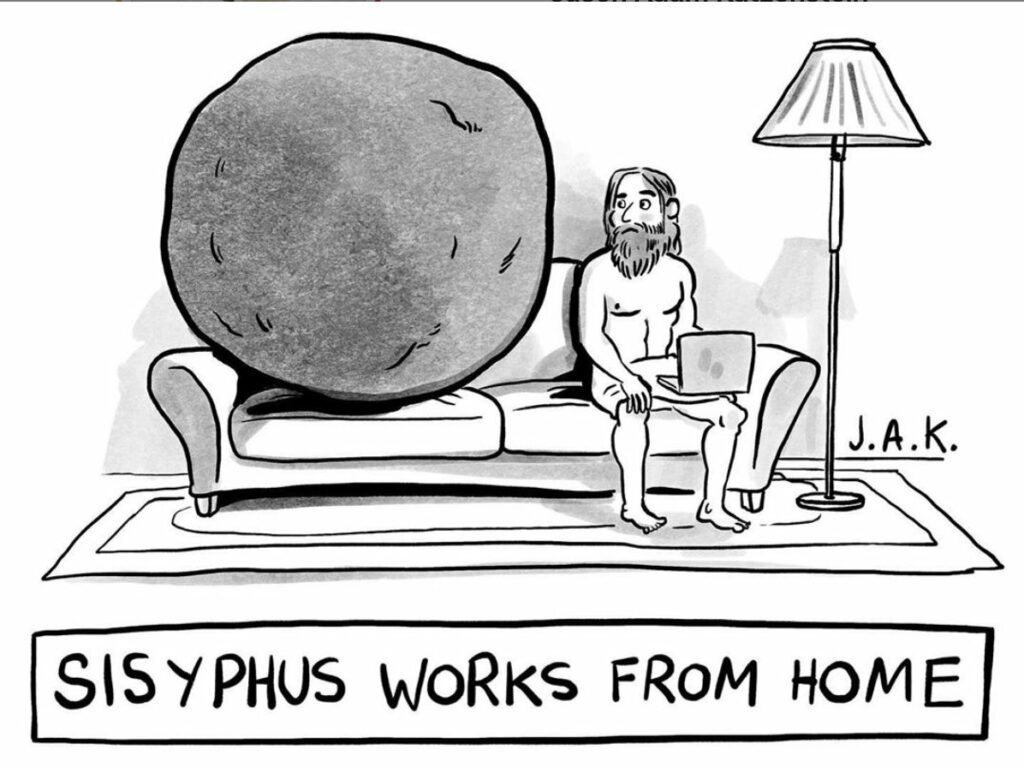Recently, in order to beat a writer’s block, I tried a great game from Dadaism called découpé. This technique involves cutting words from a written text and rearranging them. The problem was that the first two words that jumped out at me were rock and Facebook post, so I got stuck again, but there’s no problem. Even if I couldn’t solve the game, I thought that this is a great opportunity to think about what a rock and a Facebook post have in common and just write about it without a big “why?” behind. I have to tell you that I might be a bit harsh because I find social media problematic, but everything you will read in the following paragraphs is just my opinion.
If rock = the dry solid part of the earth’s surface or slang for a valuable stone used in jewelry, especially a diamond and Facebook post = public messages posted to a Facebook user’s entire audience or on a specific person’s profile page (or “wall”) then, what do these two have in common? “o”, “c” and “k”, but let’s focus on a more profound meaning. In order to argue about the obvious differences, we should start with the similarities. I think the main common aspect is the ability to create waves, whether you throw a rock in a lake or you hurl a post on Facebook. They will both create a reaction: from the water of the lake, respectively from the Facebook users. This can be a great thing if you want to make people aware of a humanitarian cause, for example.
Another common aspect is that both the rock and the Facebook post can hurt you even if they are apparently small. The part with the rock is simply simpler: if the rock hits you, it hurts you. Sometimes it might hurt even if it doesn’t hit you. For example, if there is a tiny rock in your car tire and you can hear it every second while you drive, it will drive you crazy. The part with the Facebook post is more complex. How can it hurt you? Physically, like the rock, or mentally? I believe it can hurt you in many ways. A one sentence post or even a one-word post can drive you crazy. You can take the tiny rock out from your tire and you can delete the post, but they already consumed you.
This possibility of being hurt by a Facebook post is reflected even in the Mental Help research. There are indeed consequences of the intense use of Facebook nowadays. Some of these are anxiety, depression, ADHD, eating disorders and addictions. In the U.S. networking is the no. 1 online activity. According to Facebook itself, back in 2014, the average user used to spend 8.3 hours a month on the site and now this time has increased. In Europe the highest average time spent on social media daily is 148 minutes. How much time do you spend on Facebook? Is it burdensome? I truly believe that even if a Facebook post tends to hit you in a non-material way, at the end, exactly like the rock, your mind and your body will suffer together.
Although we just realized that a rock and a Facebook post can pretty much be the same, let’s not be fooled so easily. They are different. Rocks are rocks and posts are posts. Starting from the definition, rocks can also be valuable, rocks can be diamonds or best friends. Maybe the value is a similarity and a difference too.
Now that we hit rock bottom, we can choose to see Facebook posts as rocks or not. I believe that the most important thing now is to start reading the myth of Sisyphus, replace the rock with a Facebook post and just don’t be him.

